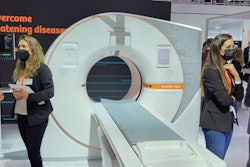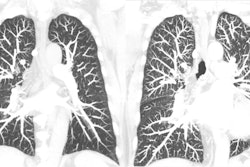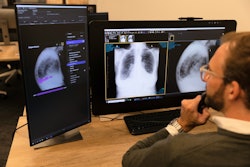Dear AuntMinnie Member,
Can artificial intelligence (AI) help diagnose Alzheimer's disease? Yes, say researchers from Kangwon National University in Chuncheon, South Korea.
In a study published recently in BioMedical Engineering Online, the team found that AI-based assessment of tau PET imaging data helped clinicians better diagnose Alzheimer's disease. Our coverage of their work was the most-read story this week on AuntMinnie.com.
Check out other stories this week in our Molecular Imaging Community, particularly how an AI algorithm can predict lung cancer subtypes based on F-18 FDG-PET/CT imaging.
fMRI can "decode" thoughts
Our second most-read article this week, researchers used functional MRI (fMRI) to create a "noninvasive language decoder" that could potentially offer a window into the minds of patients incapable of speaking.
Learn about this research and more by visiting our MRI community.
The downsides of AI?
Artificial intelligence (AI) shows promise for improving radiology department workflows, disease diagnosis, and tracking treatment. But there are some downsides, according to a study featured in our Artificial Intelligence Community. In fact, in our third most-popular story this week, German researchers describe how -- no matter their experience level -- radiologists are prone to automation bias when reading mammograms while being supported by AI-based software.
Finally, check out our coverage of transgender women's risk of prostate cancer in our CT Community and what healthcare professionals have to say about ChatGPT when it comes to addressing patient questions with empathy, also in our Artificial Intelligence Community.




















